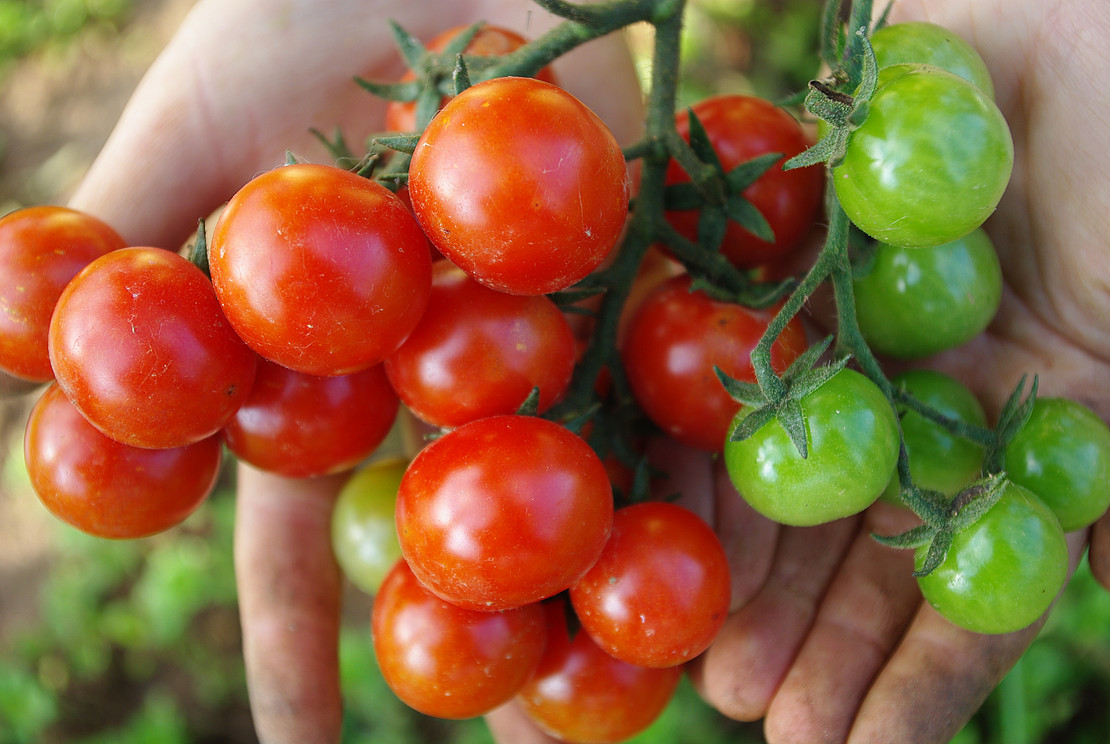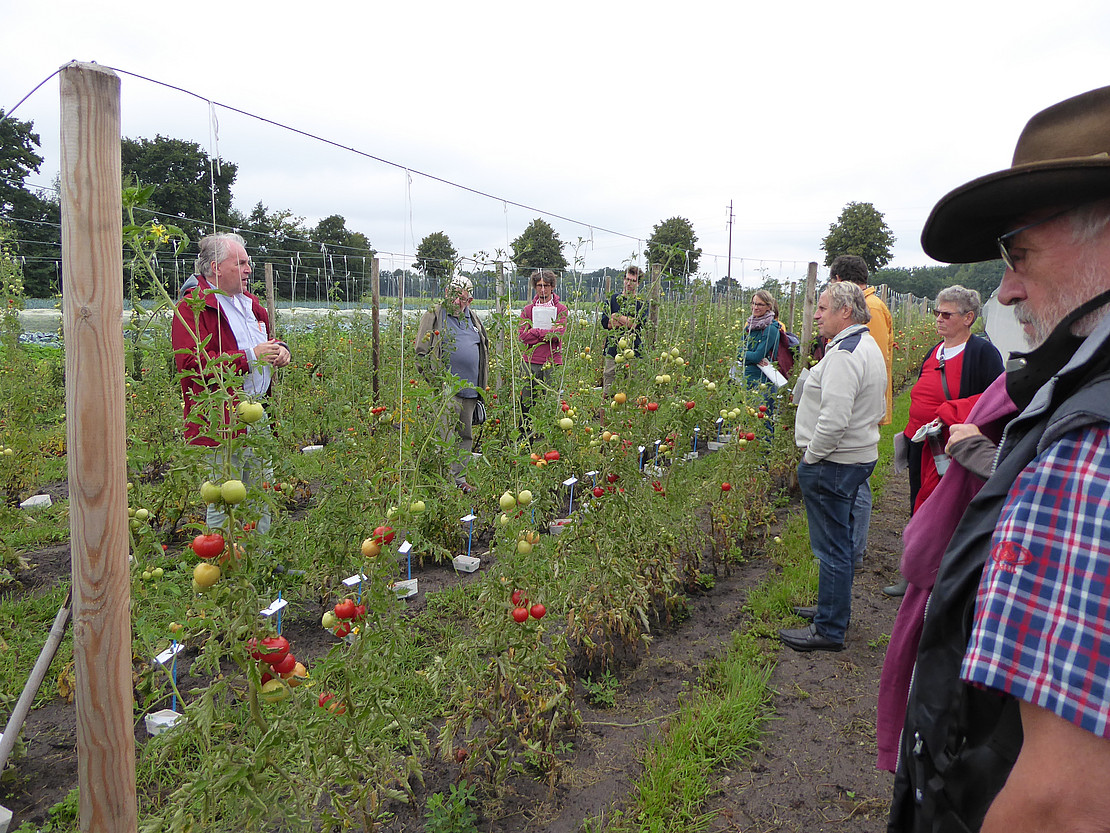This page contains automatically translated content.
Organic Tomato Day 2020: Growing Together
 Image: Horneburg.
Image: Horneburg. Image: Horneburg.
Image: Horneburg.The initiator of the project is Dr. Bernd Horneburg, Department of Organic Plant Breeding and Agricultural Biodiversity. Experts from the entire value chain met for the field day at the LohmannsHof nursery in Lower Saxony, observing hygiene measures. Contact restrictions due to the Covid-19 pandemic have led to more people rediscovering gardens and balconies - giving breeding even more weight.
The organic outdoor tomato project "is a positive model to breed in the middle of society and completely transparent" says Horneburg. New members who want to test current breeding lines are welcome, he adds. Other young plant companies that make new varieties regionally available are also particularly invited.
The organic outdoor tomato project is a network that has been working nationwide and often internationally since 2003 to improve breeding methods and develop new varieties. The project has just moved to the Department of Organic Plant Breeding and Agricultural Biodiversity at the University of Kassel in Witzenhausen. Horneburg says, "The strength of participatory breeding is collaboration. Breeding, cultivation, trade, consulting and consumers jointly determine the goals and select the best breeding lines to the finished variety." Tomatoes are grown in almost every garden, so a great many people can benefit from new varieties. A study had shown that about half of the tomatoes produced in Germany come from the amateur sector from garden to balcony.
Max Rehberg, LohmannsHof nursery: "Different locations are important for the success of breeding. With the selection on sandy soil here in the north, we can complement the breeding gardens on fertile clay soils near Göttingen, Witzenhausen, on the Lower Rhine and in Upper Bavaria." In addition to good flavor and aroma, important traits include field resistance to late blight caused by the fungus Phytophthorainfestans and general hardiness in times when water and nutrients are scarce.
In most cases, variety approval and seed law responsibility lies with Culinaris - Seeds for Food. Moritz Halekotte of Culinaris emphasized that "seed law responsibility and conservation breeding for many varieties are a challenge that we gladly accept in order to make well-adapted varieties publicly available." In the meantime, a number of participatory-bred varieties have been approved and they are becoming established in cultivation. The variety ranges from the particularly juicy and fruity Resi, Primavera and Dorada for direct consumption to Primabella, Resibella and Rondobella, which are also suitable for direct marketing.
The free exchange of varieties and breeding lines must be done very carefully when there is a risk of infestation with seed-borne diseases. Dr. Heiko Ziebell from the Julius Kühn Institute presented as an expert the current risks due to the Jordan virus (tomato brown rugose fruit virus), which has newly appeared in Germany in 2018, and the possibilities of prophylaxis.
Information: The Ecological Outdoor Tomato Project www.uni-kassel.de/go/fb11-opb
More photos: https://hessenbox.uni-kassel.de/public?folderID=MktmZkY3blhYVHFURHk2eXZSUHlD
Contact:
Dr. Bernd Horneburg
Department of Organic Plant Breeding and Agricultural Biodiversity
E-mail address: bernd.horneburg[at]uni-kassel[dot]de